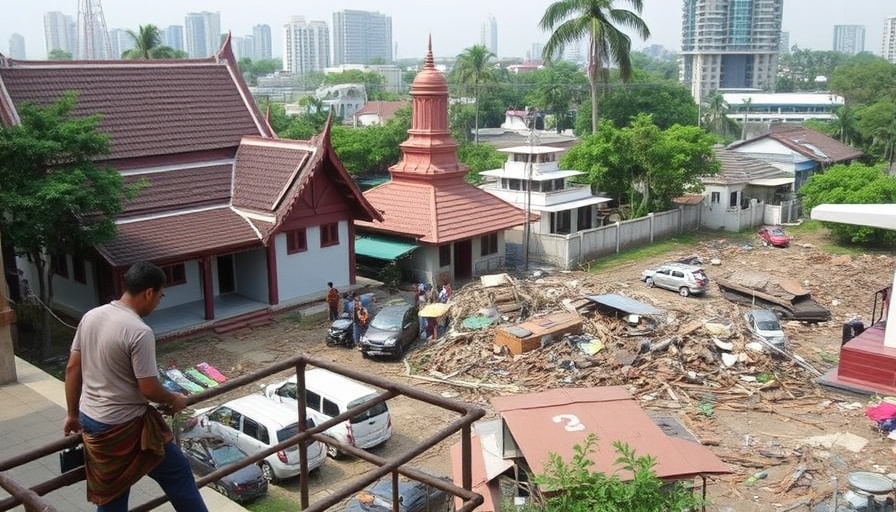
Tragedy Strikes Myanmar and Beyond: The Aftermath of a Devastating Quake
A powerful earthquake with a magnitude of 7.7 struck central Myanmar on March 28, 2025, sending shockwaves throughout Southeast Asia and claiming multiple lives. As the tremors cascaded through the region, buildings crumbled, leaving a wake of devastation. Reports indicated that at least three fatalities occurred in the town of Taungoo as a mosque succumbed to the earthquake's might. More casualties followed, particularly in Aung Ban, where a hotel collapsed, injuring dozens more.
The situation remained grim as the ruling military junta refrained from providing specific numbers of those affected, leading to an outcry for transparency amidst crisis management. In stark contrast, the parallel National Unity Government – opposing the junta – estimated that at least 12 lives were lost, with fears of additional casualties yet to be confirmed, particularly in Mandalay, an area crucial to Myanmar's cultural identity.
Rescue Operations in Thailand: A Glimpse at Regional Responses
As the quake triggered chaos across the borders, Thailand was not spared. In Bangkok, rescuers tirelessly searched for 81 individuals trapped under rubble from a skyscraper that collapsed during the tremors. The Defence Minister assured the public that efforts were underway to uncover survivors, albeit amidst caution about aftershocks.
Local authorities reported three fatalities at the site, with Bangkok Governor Chadchart Sittipunt emphasizing the importance of remaining calm. Even as rescue operations unfolded, the psychological toll on residents grew, particularly those who were witnesses to the calamities, like one individual who recounted the horror of seeing buildings collapse around them.
The Broader Implications on Myanmar’s Governance and International Relations
The earthquake not only devastated communities but also posed severe challenges to Myanmar's already fragile governance under military rule. The junta, embroiled in a civil war against against armed uprisings, faces increasing scrutiny and pressure. With a state of emergency declared in multiple regions, the military's ability to deliver effective disaster response remains questionable, potentially undermining its legitimacy in the eyes of its citizens.
Social Media Responses and Information Gaps: Images and videos flooded social media, showcasing the desolation in major cities like Mandalay, but verifying these posts proved elusive for agencies like Reuters. Inaccurate information could exacerbate tensions and misinformation surrounding governmental capabilities during emergencies.
Looking Forward: What This Means for Regional Stability
The quake's ramifications extend beyond immediate rescue efforts. As Myanmar's governance is tested, international observers may ponder the geopolitical implications. With various parties involved—both local and international—the situation could reshape Myanmar's foreign relations and humanitarian policies.
Given that Myanmar’s economy is already strained under civil discord, the earthquake could deepen existing vulnerabilities, prompting regional powers to reconsider their engagement strategies. The response to this disaster will not only reflect humanitarian priorities but also serve as a litmus test for the region's stability.
Conclusion: Time for Action
As developments unfold in the aftermath of this earthquake, the need for international solidarity and swift humanitarian aid has never been more crucial. Observers and stakeholders must ensure that immediate responses are organized, effective, and directed toward those trapped in the rubble.
 Add Row
Add Row  Add
Add 


Write A Comment